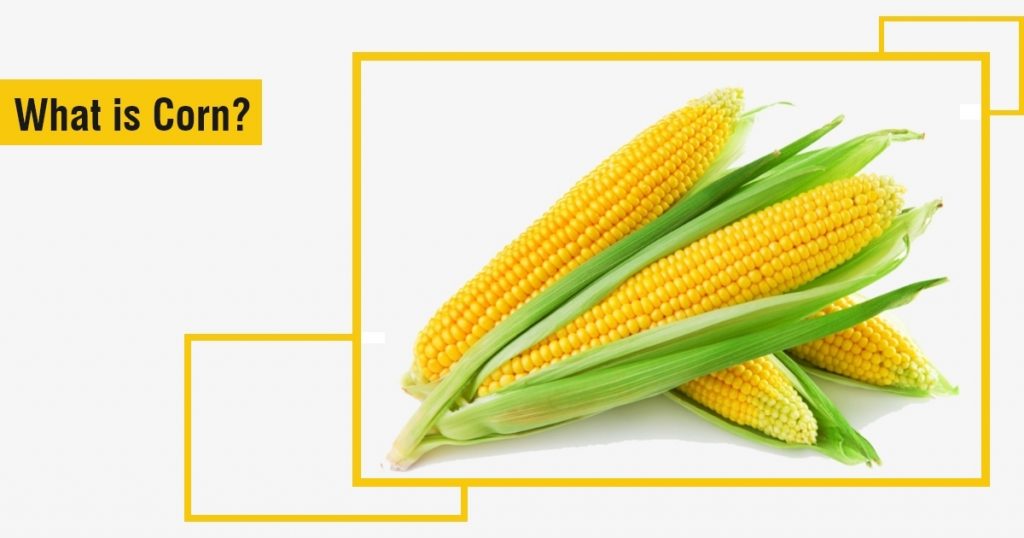Cornflour is a flour powder that is made by finely ground cornmeal but not to is confused with cornstarch because it is different. cornflour kya hai, cornflour in hindi ararot look wise white and yellow and is usually used for breading and also combined with other flours in baked goods.
Cornstarch is a popular ingredient used to thicken soups, stews, sauces, and desserts.
1. What is Corn?

Corn or maize and these questions What is corn flour is a grain found all across the globe makka and it is started in Southern Mexico. If you think corn is just yellow corn is yellow in color, you will be surprised to know that they are red, blue, pink, and even black and are spotted in some cases. It is simply not just used as food but also as a biofuel, livestock feed, and raw material in various industries. It is consumed both as a snack and a staple and is not just yummy but carries maximum Cornflour benefits.
2. Health Benefits of Cornflour

2.1 Cornflour is gluten-free
Corn flour is gluten-free and is a great alternative to wheat flour. It is used for thickening gravies and makes baked goods, tortillas without using inflammatory gluten, and maximum Health Benefits of eating corn. Inflammation is the main cause of most diseases so eliminating inflammation-causing foods from diet assist in preventing diseases and also improves the quality of life.
Read More- 6 BENEFITS OF EATING ROASTED CHANA AND JAGGERY
2.2 Rich in fiber
One cup of Health benefits of cornflour offers a third of regular fiber goals and also provides the essential protein that is required daily so the dishes made from it attain requirements. It is a good choice for vegans because for them protein to be found in the diet would be demanding.
2.3 Supports digestive health
Corn comprises cellulose, amylose, hemicellulose, and lignin which are called insoluble fibers. The balances between insoluble and soluble fibers assist proper digestion. Insoluble fibers found in corn have the ability to ferment in the colon and assist diverse microbiome.
2.4 Antioxidant properties
Freshly made corn flour is rich in disease-preventing antioxidants. It contains polyphenols (a specific type of antioxidant) that help fight free radical damage achieved by processed foods.
2.5 Improves Bone Health
Magnesium and potassium are important minerals hold in cornflour which assists to upgrade bone mineral density. In other words, potassium conserves the amount of calcium in the body thereby reducing decreasing calcium loss.
The most remarkable significance of magnesium in the human body is to build up the bones, including the combination tissues including the teeth. These key minerals work in hand with each other to overall bone health.
2.6 Prevents high blood pressure
Corn flour helps to reduce the risk of cardiovascular diseases such as high blood pressure; stroke and other related coronary artery diseases because it is notably examining a low-sodium diet.
It is a very good daily suggestion for old people mainly the ones that have high blood pressure, as it will better the situation and place it under an average condition.
2.7 Prevent Anaemia
Some of the main vitamins found in corn flour are vitamin B-9, folate, and iron which stop dysfunctional red blood cells in other words known as anemia.
When the body has very low red blood cells, the effect becomes anemia which can divest the body tissues of the required oxygen it which is a transfer by the red blood cells.
To improve or treat this condition, cornflour should be added to daily diets because it contains a realistic amount of iron which helps in the formation of new blood cells.
2.8 Promotes Healthy Body Weight
Corn in its ground form known as corn flour still have high fiber content which can give greatly to weight loss. Some people do think that eating corn and its derivatives will make them gain weight due to the presence of calories and some amount of fat in it.
Notwithstanding, the amount of fat in this corn flour is quite negligible and does little to gaining extra weight. On the other hand, the presence of fiber helps to feel fuller on fewer calories.
Therefore, corn flour is one of the staple foods that can help one to achieve weight loss and body weight management, especially when consumed in moderation.
3. Corn Nutrition
The composition of these nutrients is tabulated as follows which carries Nutritional benefits of cornflour :
| Nutrient (per cup) | Values |
| Calories | 361 |
| Fat | 3.9 grams |
| Protein | 6.9 grams |
| Carbohydrates | 77 grams |
| Starches | 75 grams |
| Dietary fiber | 7.3 grams |
| Magnesium | 0.460 mg |
| Potassium | 315.00 mg |
| Riboflavin | 0.9 milligrams |
| Thiamine | 1.8 milligrams |
| Niacin | 11 milligrams |
| Iron | 9 milligrams |
| Folate Vitamin B-9 | 238 micrograms |
4. Summary
Corn flour or maize flour is a recipe derived from maize by grinding the kernels into finely powdered particles. This extract is a healthy food that is most commonly used as food ingredients in food. It can be used for thickening for soup, cornbread, or sauces.
Some health benefits of cornflour include helping to lower the level of cholesterol in the blood, reducing the risk of constipation, regulate high blood pressure, energizing the body, improving bone health, prevention of high blood pressure, improving psychological functions, good for pregnant women, prevents lack of red blood cells, helps in maintaining healthy body weight and much more.
5. Disclaimer
The information covered at this site is for educational motives only and is not deliberately to be an alternative for medical treatment by a healthcare professional. Because of solitary individual needs, the reader must consult their physician to decide the appropriateness of the information for the reader’s state.
6. FAQ
Q1. What exactly is corn flour?
Corn flour is the result of grinding entire corn kernels into a fine powder. Therefore, it contains protein, fiber, starch, and vitamins and minerals found in whole corn. It’s typically yellow.
Q2. Is corn flour good for weight loss?
Corn is rich in fiber and plant compounds that may aid digestive and eye health. Yet, it’s high in starch, can spike blood sugar, and may prevent weight loss when consumed in excess.
Q3. Is corn flour bad for diabetics?
Excess consumption of corn flour is not advisable for obese and diabetic patients.
